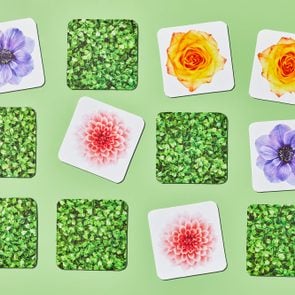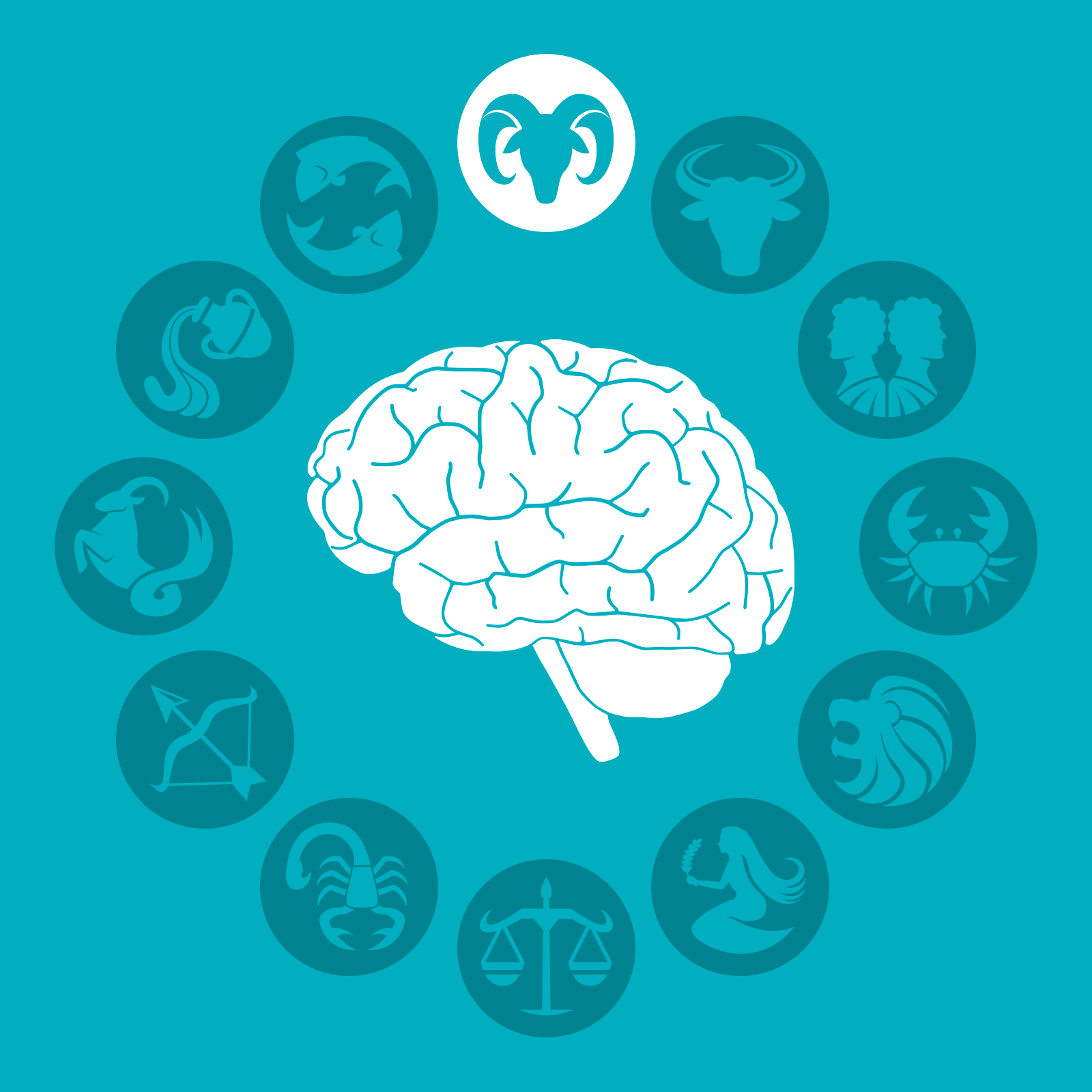How to Become Smarter and Wiser: 16 Strategies to Boost Your Brainpower
Updated: Mar. 08, 2024
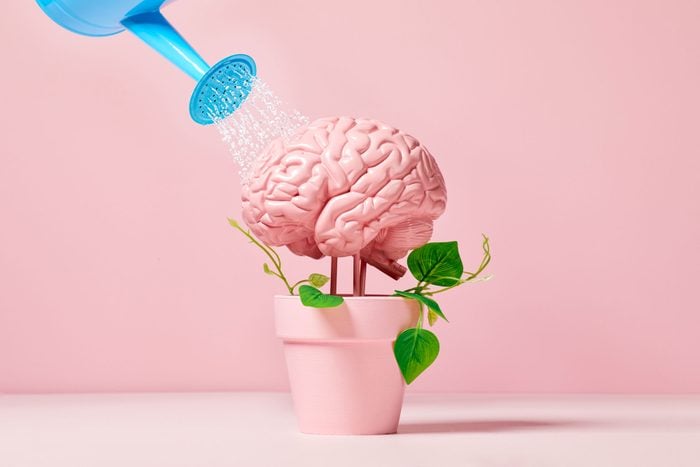
You can improve your focus and memory, better your creative problem-solving ability and get smarter with some simple and easy changes to your lifestyle
Today’s world is more competitive than ever. So whether you’re trying to get elected to a local committee or land a prized promotion, you’ll want to leverage every possible advantage. That’s one reason so many people are looking for ways to be smarter.
Boosting brainpower can also have benefits down the road. Though it may not be possible to raise your IQ (more on what that means below), research shows that people who take steps to preserve their brain health can avoid some of the cognitive decline associated with aging and certain medical conditions. We spoke to experts in intelligence, brain health and neuropsychology to learn more.
Before we get into the tips on how to be smarter, it helps to understand what intelligence actually means.
Get Reader’s Digest’s Read Up newsletter for more knowledge, humor, cleaning, travel, tech and fun facts all week long.
Types of intelligence

Psychologists have long viewed intelligence as being driven by one overarching factor, known as “g,” which stands for “general intelligence.” G is what enables each of us to perform all types of thinking and reasoning tasks, which together make up intelligence. Higher levels of g result in higher intelligence. But that’s not the whole story.
Why are some people able to speak seven languages but helpless at doing taxes? And then there are others who can play nearly any musical instrument but panic when they have to parallel park? The answer: Because there are many different types of intelligence, as modern-day researchers have discovered.
In 1983, former Harvard professor Howard Gardner introduced the theory of multiple intelligences. He outlined eight different types of intelligence, noting that people may be stronger in one or more areas and weaker in others. The eight types of intelligence fall into these categories:
| Linguistic intelligence | People with linguistic intelligence are good with words. They often excel at writing, reading or public speaking. |
| Logical-mathematical intelligence | People who are good with numbers probably score high in this type of intelligence. They’re able to do calculations in their head and tend to be highly analytical. They probably notice patterns and solve problems easily. |
| Spatial intelligence | People who can pack a car trunk for a road trip like it’s a game of Tetris probably have high spatial intelligence. It helps them see things in a 3-D manner so they can visualize and manipulate objects in their head. This can be useful in artistic pursuits as well as in careers such as architecture. |
| Musical intelligence | People with strong musical intelligence naturally tune in to differences in pitch, rhythm and other aspects of music. This is helpful for singers, songwriters and other musicians. |
| Bodily-kinesthetic intelligence | People who are good with their hands tend to have high kinesthetic intelligence. They are physically coordinated and can move their bodies in nuanced ways. People with this type of intelligence have promise as athletes, surgeons and construction workers. |
| Interpersonal intelligence | People who have higher-than-average interpersonal intelligence tend to read social cues well and show empathy for others. They work well on group projects too. People with this skill might excel in sales, politics, teaching or healthcare. |
| Intrapersonal intelligence | People who understand themselves well—their habits, triggers and motivations—have high intrapersonal intelligence. This is useful for someone who is self-employed or, like a writer, needs to meet deadlines. |
| Naturalistic intelligence | People who can tell a delicious edible mushroom from a poisonous one in the wild typically have high naturalistic intelligence. They have an inborn ability to recognize and distinguish different plants and animals and understand their needs. These people would make great environmentalists, botanists or meteorologists. |
What is IQ?

IQ stands for intelligence quotient—it’s basically a number that is supposed to represent your ‘g.’ You can learn your IQ by taking a standardized test that measures specific abilities thought to comprise ‘g.’ These skills include verbal reasoning, mathematical skills, visual-spatial reasoning, processing speed and working memory.
Intelligence tests aim to measure both “‘fluid intelligence’—one’s ability to take new or novel information and think abstractly—and ‘crystallized intelligence’—knowledge already obtained and retained,” explains Renee Lexow, PhD, supervisory psychologist at American Mensa. “Simply put, intelligence tests measure one’s ability to think, apply skills and problem solve,” she adds. This Mensa quiz can give you an idea if you’d score high enough (in the top 2%) to join the Genius Society. If you don’t make the cut, don’t fret. Even Albert Einstein didn’t have the highest IQ.
And that’s likely because IQ doesn’t reflect all the skills, such as common sense, decision-making ability, creativity or emotional intelligence, that make us who we are. “Personality is not measured in an IQ test,” explains John DeLuca, PhD, a neuropsychologist and senior vice president for research at the Kessler Foundation. But personality, which is independent of IQ, “can have a huge impact on how one functions and is successful in society,” he says.
All these factors contribute to the subjective notion of how “smart” a person is. And the good news is that you have the power to improve your smarts. We’ve consulted experts and the latest research to compile a list of strategies for how to be smart—or smarter.
16 ways to become smarter
Now that you have a better understanding as to all the different ways a person can be intelligent and what IQ measures, it’s time to learn about suggestions on how to become smarter on every front. Read on for tips that are backed by scientific research from experts in the field.
1. Indulge your inner bookworm

Not only is reading a great way to relax and reduce stress, but research suggests reading is also important for boosting your brainpower. It helps you focus, build memory, see problems from multiple perspectives and learn new ideas; plus it also helps build your vocabulary. Not enough time in the day for all the books you want to read? Learn how to read faster.
2. Become a human thesaurus

When you expand your vocabulary, you are better able to understand what you read and hear, as well as express your ideas more clearly and concisely. These skills can go a long way toward contributing to success in school and at work.
3. Entertain your brain
If you enjoy gaming, why not play brain games? While the jury is still out on whether brain-training games actually improve your intelligence, the initial research is promising. A 2019 study found that people between the ages of 50 to 93 who solved number puzzles more than once a day had superior cognitive performance on 10 different measures.
Whether you solve logic puzzles, crossword puzzles, sudoku grids, riddles or lateral thinking puzzles, or even download an app like BrainTap, you’re sure to engage your reasoning, problem-solving and memory skills—and become smarter.
4. Challenge your memory
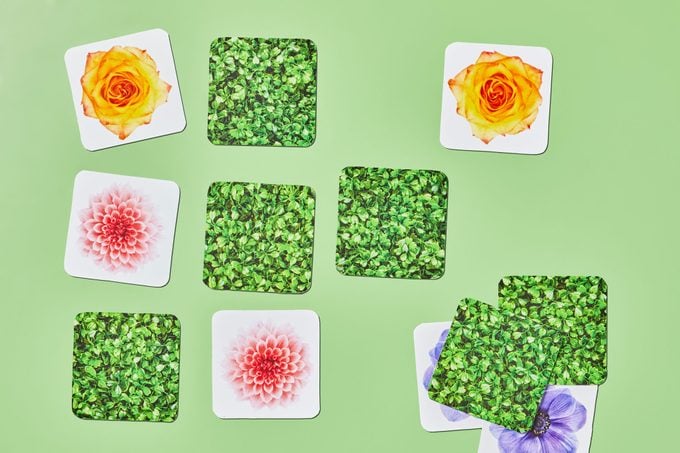
Think you have the memory of an elephant? Prove it by tasking yourself to recall information rather than looking it up or writing out list after list. “If you learn memory techniques, your memory performance is going to improve, and if you don’t use them, your memory is going to fade,” says Gary Small, MD, chair of psychiatry at Hackensack University Medical Center and author of 2 Weeks to a Younger Brain.
5. Talk to strangers
OK, we obviously want you to be safe. Maybe don’t approach strangers in dark alleys, but do look for opportunities to expand your social circle, even if it means chatting up the barista at your local coffee place or exchanging a few words with your postal carrier. A wide body of research suggests that social isolation can lead to decreased memory, executive function and other aspects of brain health.
At the same time, the more people you meet and interact with on a regular basis, the more you’ll be exposed to different perspectives and experiences. You’ll learn to approach the world differently. If you’re not sure what to say to new people, consider these conversation starters.
6. Develop a laser-like focus

We’ve become a society of multitaskers, but research shows that trying to do more than one thing at a time is bad for our brains.
The more you can tune out distractions and dial in your focus, the more information you’ll be able to absorb—and remember later. You’ll also be able to give all your attention to the task at hand, which can’t help but boost your performance, no matter the task.
7. Learn something new

Learning a new skill has been shown to produce structural changes in the brain, a concept known as neuroplasticity. Not only does learning something new help form new neural connections, but it can also change the size of specific areas of the brain.
For example, a taxi driver who needs to memorize the layout of a city will likely have a larger hippocampus, the region of the brain responsible for memory and navigation. There are lots of great ways to put this principle to work. You could take up pickleball, learn to juggle, try your hand at pottery or learn a new language. Anything that helps you engage your brain in a new way will do the trick.
8. Be curious

Much has been said about the benefits of a growth mindset versus a fixed mindset. One of the hallmarks of growth is being curious and asking questions about how things could be different or better. This can spur more creative thinking. Being open to new ideas can also lead you to meeting new people with different viewpoints, which, as noted above, helps preserve brain health. In addition, being curious leads to asking questions—and learning new information that will make you smarter.
9. Run from zombies
Escape rooms are more than just good fun; they can help you flex your focus, memory, creativity and problem-solving skills. What’s more, they can help you work more efficiently with co-workers, classmates and/or friends. Whether you’re trying to outrun brain-eating zombies or pull off a bank heist, escape rooms can help you, both as individuals and as a group, develop stronger focus, clearer communication, more creative problem-solving, better memory and other cognitive skills, as well as boost your emotional and social intelligence. You’ll find that when people put their heads together, they can often solve problems more easily and with more elegance than they could on their own.
10. Break out of your comfort zone
If you’ve always dreamed about ziplining through a jungle but haven’t had the nerve to try it, perhaps it will help to know that trying new things gives your brain a boost of dopamine—the feel-good hormone. It also helps build new neural connections and boosts creativity. And it doesn’t have to be as dramatic as ziplining—you could simply hike a new trail, eat a new food, listen to a different kind of music or see a different kind of movie.
11. Mentor someone

When you advise another person—whether you’re teaching a creative writing class at the local community college or showing your aunt how to use a new app on her phone—you’re strengthening your own brain. In what’s known as the “protégé effect,” research shows that people who expect to have to teach something to others actually show more complete and better-organized recall of the material being taught. Even demonstrating a physical skill, like how to hit a golf ball, improves information processing and motor learning for the teacher.
12. Get crafty
Or not. If quilting isn’t your thing, maybe try gardening or wine tasting. Just find a hobby that’s fulfilling—it doesn’t really matter what it is. “Get involved in activities you enjoy, and do them regularly,” Small advises. Depending on your hobby, it may lead to new social connections as well as new neural connections. A recent Japanese study of nearly 50,000 people over 65 found that the risk of dementia decreased as the number of hobbies they participated in increased.
13. Join a band
You don’t have to actually jam in someone’s garage if that’s not your idea of fun. But if you learn to play an instrument, you’ll be helping your brain hit all the high notes. Research shows that people who play music have better working memories than those who don’t. Playing an instrument also helps boost overall intelligence, as well as executive function skills such as attention and problem-solving. Not to mention that if you play with other people, you boost your social interaction and cooperation skills.
14. Trust your gut
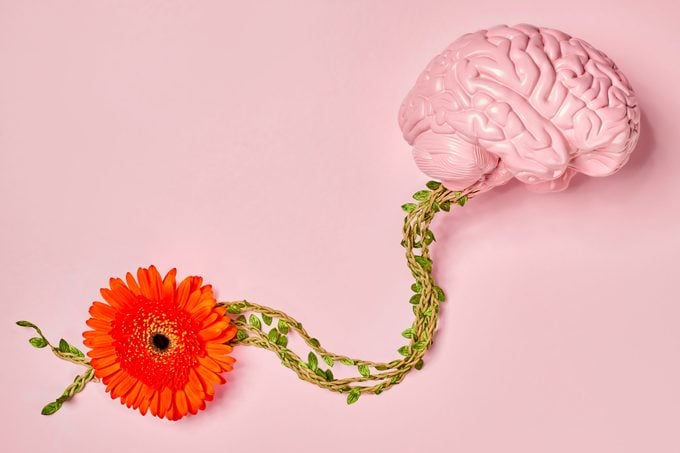
When you get a “gut instinct” about something, it’s likely not just a hunch. It’s your brain subconsciously reading people or situations and then tuning into how the neural circuits and neurotransmitters in your digestive tract are reacting. Paying attention to these cues could make you smarter or wiser by helping you better understand what’s really happening around you.
15. Take time to reflect
When you make time to journal, it helps boost recall of what actually happened that day and how you responded—and helps you think creatively of other ways to respond to similar situations in the future. Journaling also lowers stress and boosts mood. There are lots of ways to journal—from handwritten gratitude journals and bullet journals to apps that prompt you to upload photos that describe your day. Find one that inspires you and works with your lifestyle.
16. Nurture your brain
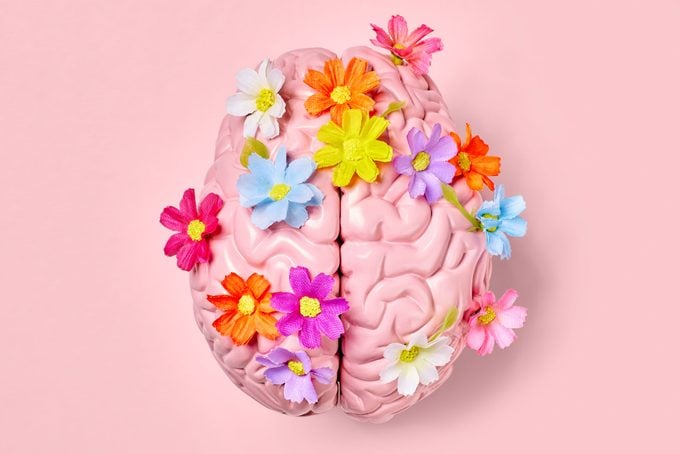
It turns out that many of the same things that are good for your heart are also good for your brain. Get smarter by incorporating the following healthy habits into your life.
• Exercise regularly
Numerous studies have found that regular exercise keeps the brain sharp. For example, one study showed that aerobic exercise improves cerebral blood flow. A recent review of studies confirmed that working out improves cognition, processing speed/attention and executive function.
• Eat brain foods
Foods that are rich in omega-3 fatty acids and antioxidants may help protect the brain. Fiber, protein and certain vitamins may also help. For these reasons, foods such as fatty fish, walnuts, berries and kale are often recommended as brain foods.
• Meditate
Meditation has been shown to reduce stress, improve attention and focus and potentially help memory. And it doesn’t have to be all new-agey. Many meditation instructors advise simply focusing on your breath as you inhale and exhale. If thoughts arise during this, you simply dismiss them and return to your breath. Of course, there are many other ways to meditate. But if you do want to try a classic form of meditation, research shows that memorizing and repeating mantras activates the hippocampus, which is involved in memory.
About the experts
- Renee Lexow, PhD, is a licensed clinical psychologist and American Mensa’s supervisory psychologist. She holds a doctoral degree in clinical forensic psychology from The Chicago School of Professional Psychology. She is also the owner of Bella Living Psychological Services in Fort Worth, Texas.
- John DeLuca, PhD, is a neuropsychologist and senior vice president for research and training at the Kessler Foundation. He is also director for the Center for Multiple Sclerosis Research at Kessler, and interim director at Kessler’s Center for Stroke Rehabilitation Research. He has published more than 350 articles and book chapters on disorders of memory and information processing.
- Gary Small, MD, is chair of psychiatry at Hackensack University Medical Center and author of 2 Weeks to a Younger Brain. He is also behavioral health physician-in-chief at Hackensack Meridian Health.
Sources:
- International Journal of Geriatric Psychiatry: “The relationship between the frequency of number-puzzle use and baseline cognitive function in a large online sample of adults aged 50 and over”
- Journal of Alzheimer’s Disease: “Social Isolation and Cognitive Function in Later Life: A Systematic Review and Meta-Analysis”
- Cerebrum: “Multicosts of Multitasking”
- Bilingualism: “Understanding structural plasticity in the bilingual brain: The Dynamic Restructuring Model”
- Memory & Cognition: “Expecting to teach enhances learning and organization of knowledge in free recall of text passages”
- Human Movement Science: “Expecting to teach enhances motor learning and information processing during practice”
- PubMed: “Types and number of hobbies and incidence of dementia among older adults: A six-year longitudinal study from the Japan Gerontological Evaluation Study (JAGES)”
- Music Perception: “The Working Memory of Musicians and Nonmusicians”
- Frontiers in Psychology: “On the Association Between Musical Training, Intelligence and Executive Functions in Adulthood”
- Learning and Instruction: “Music lessons enhance executive functions in 6- to 7-year-old children”
- JMIR Mental Health: “Online Positive Affect Journaling in the Improvement of Mental Distress and Well-Being in General Medical Patients with Elevated Anxiety Symptoms: A Preliminary Randomized Controlled Trial”
- Journal of Alzheimer’s Disease: “Resting Cerebral Blood Flow After Exercise Training in Mild Cognitive Impairment”
- Neurology Clinical Practice: “Exercise for cognitive brain health in aging”
- Journal of Alternative Complementary Medicine: “Functional magnetic resonance imaging of hippocampal activation during silent mantra meditation”

